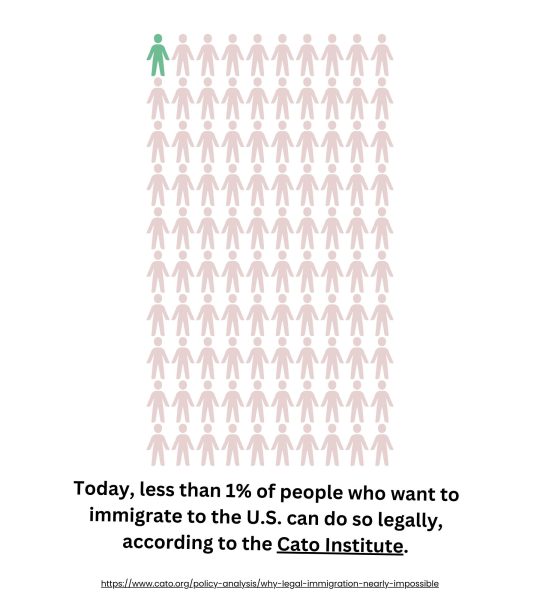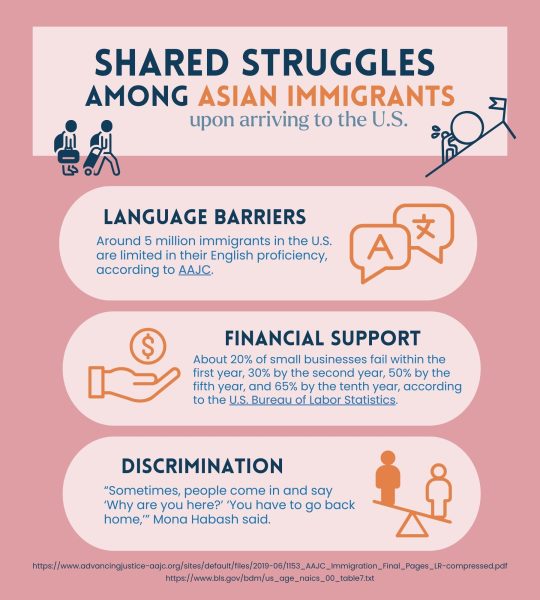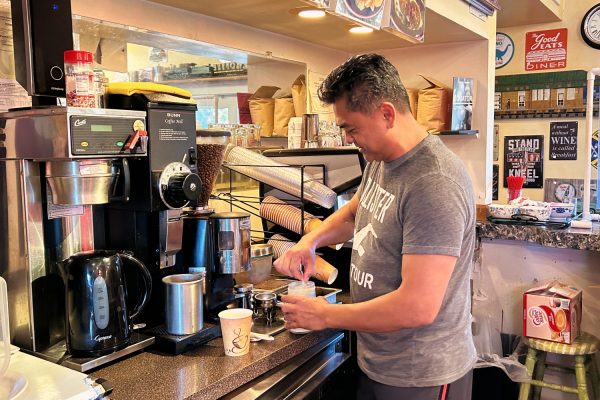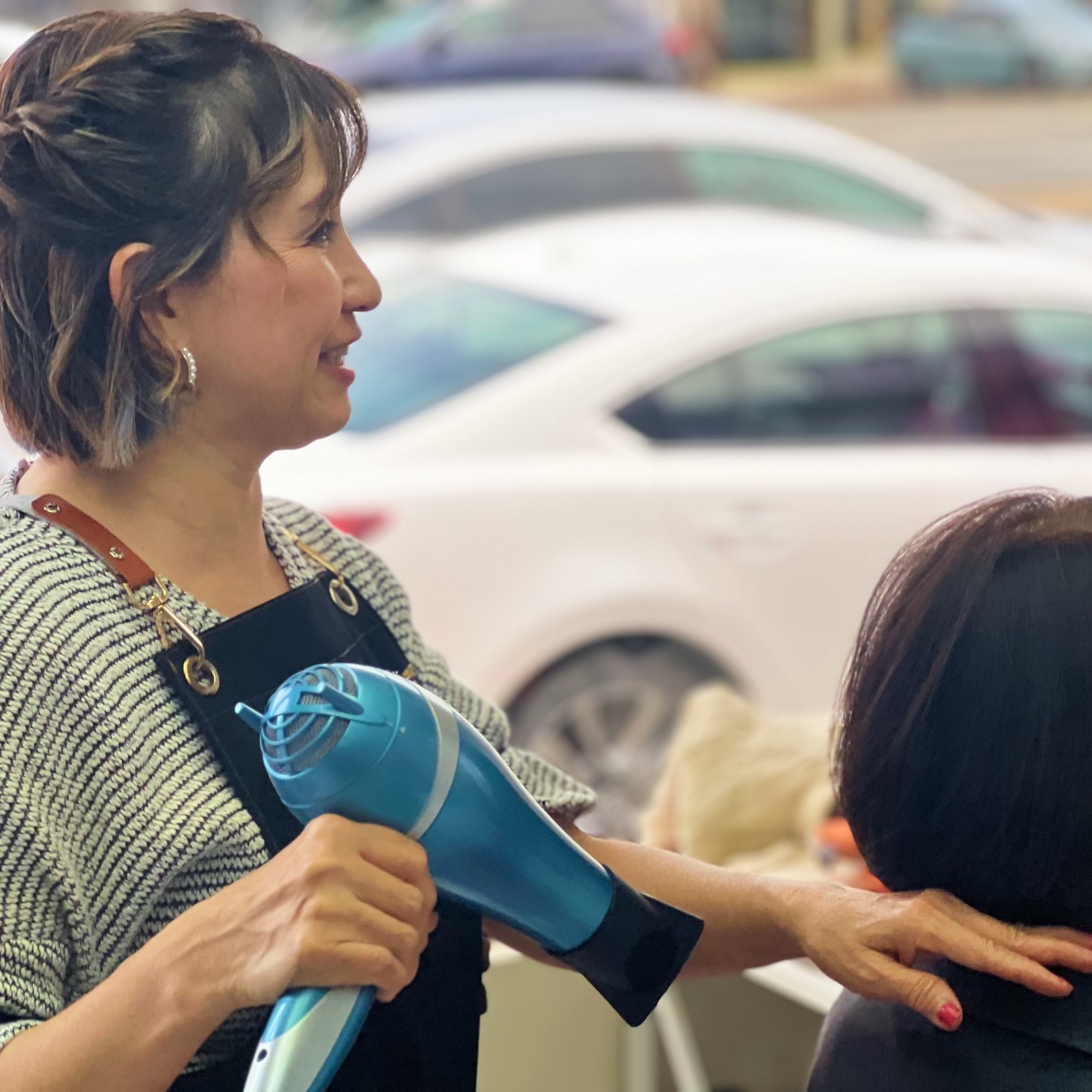Emily Lam left Vietnam as a teenager with eleven family members in 1980 through a family sponsorship in order to escape communism. Making a living in the U.S. proved to be significantly challenging upon their arrival.
“Every day, for almost two years, my mom spent 99 cents for just one chicken for all of us,” Lam said.
Mona Habash immigrated to the U.S. with her brother from Palestine as a university student in 1982 through a sponsorship from their uncle. After moving to the Bay Area and marrying her husband, they opened a small market as business partners.
Timothy Velilla left the Philippines for the U.S. in 1992 in search of greater opportunities. The immigration process went smoothly for him, but maintaining a business was far more difficult.
In hopes of seeking economic prosperity or escaping homeland danger, Asian immigrants such as Lam, Habash, and Velilla have faced countless obstacles as they have left their home country, immigrated to the U.S., and started a new life from scratch.
Embarking on the journey of immigration

As they plan to leave their home countries, many immigrants quickly realize how difficult it is to enter the U.S. The U.S. is incredibly restrictive in its immigration system. Today, less than 1% of people who want to immigrate to the U.S. can do so legally, according to the Cato Institute. Having a sponsor increases these chances.
“The immigration system we have now is quite dysfunctional,” said Martin Kim, the director of Immigration Advocacy at Asian Americans Advancing Justice (AAJC), a national nonprofit working to advance Asian American civil rights. “Some individuals trying to get an employment-based green card will be waiting 50 years or longer… On the family-based side, some people have been waiting five, 10, or even 20 years to be reunited with their families here. This is something that particularly affects Asian immigrants; about 40% of the backlogs are made up of Asian immigrants.”
Lam was an immigrant who came to reunite with her family in the U.S.
“My oldest brother escaped from Vietnam first, so he was the one that sponsored us, allowing us to immigrate here,” Lam said.
Enduring challenges as foreigners in a new land
In addition to the hardships of the formal immigration process, immigrants must face the complications that come with living as new arrivals in an unfamiliar land.
“Immigrants face specific challenges related to language access and legal status, in addition to issues of discrimination and acculturation. Depending on immigration status and other factors, folks may or may not qualify for certain types of benefits,” said Sarah Feldman, an Immigrant Services Coordinator with the San Mateo County Office of Affairs. “Additionally, there is fear related to immigration status–both for those who are undocumented and those who have legal status and don’t want to jeopardize it.”

Language barriers are a commonly shared struggle among Asian immigrants.
“I had a hard time learning English because I came here when I was 15 and didn’t even know the alphabet. I went to school not knowing how to speak English, and I hated it, I was embarrassed,” Lam said.
Around five million Asian immigrants in the U.S. are limited in their English proficiency, according to AAJC.
Immigrants also struggle with financial support when attempting to make a living with minimal resources.
“It was difficult financially. My dad was back home in Bethlehem as a doctor. He had dual citizenship… we stayed here studying, and he was supporting us from there and sending us money,” Habash said.
The path of entrepreneurship
The American Dream has long been associated with the notion of opportunity and success through hard work. For some Asian immigrants like Lam, Habash, and Velilla, this dream takes shape in the form of small business ownership despite the intimidating chances of failure. According to the U.S. Bureau of Labor Statistics, about 20% of small businesses fail within the first year, 30% by the second year, 50% by the fifth year, and 65% by the tenth year.
After helping out with her mother’s hairdressing business for several years following their arrival to the U.S., Lam, alongside her sister, opened her own business, Mayfair Hair & Nails. She took full ownership of the business shortly after in 1997. Yet keeping the business up and running was daunting.
“Sometimes we sat in the shop for nine or 10 hours and had no customers. We still had to come into the shop because we didn’t have cell phones at the time to make appointments,” Lam said. “We would put our flyers on car windows and in mailboxes. People would call saying that we couldn’t do that and yelled at us a lot.”
Sometimes, people come in and say ‘Why are you here?’ ‘You have to go back home.’ But you know what? It doesn’t affect my husband or me. We keep it like ‘Business is business.’ — Mona Habash
After immigrating to the U.S., Velilla and his wife bought and transformed their business, East Bay Cafe Depot, from a previous owner. Although taking over an established business seemed like a headstart, the Velillas had to overcome the challenges that came with the prior business.
“Business life is tough. It’s hard. Taking over somebody else’s business, there are always pros and cons, and everything was all cons in this place. When it was operated by the previous owners, there were no customers coming in. It had a really bad reputation, so we had to build it up for several years,” Velilla said.
Starting a business is a challenging endeavor in and of itself. Asian American small business owners face additional hardships as immigrants of a minority group who are sometimes perceived to be unwelcomed in the U.S.
Habash has experience with this challenge, as she runs The Rainbow Market, her and her husband’s marketplace, and deli which is located in the bustling streets of San Francisco.
“Sometimes, people come in and say ‘Why are you here?’ ‘You have to go back home,’” Habash said. “But you know what? It doesn’t affect my husband or me. We keep it like ‘Business is business.’ We don’t want to get into politics because then it would be really not good.”
Reaching success
Despite countless obstacles, Asian immigrants manage to overcome the hurdles. In fact, some even manage to find joy throughout their journey in the face of adversity.
“With the support of friends and local community, we were able to build up our business. We’re now in our eighth year of operation,” Velilla said. “I really enjoy meeting a lot of people of different families, backgrounds, and ethnicities.”

Lam and Habash both find appreciation in the sense of freedom that comes with owning their own businesses.
“I can book appointments any time I want to since I’m the owner… I can block time out if I want to go on vacation. If my employees want money, they can come in to work anytime. It’s flexible,” Lam said.
Habash has also found the same benefits.
“I have my own hours, whenever I want to go in. I don’t have to go and clock in. That’s the good part about it,” Habash said.
These families’ stories offer a glimpse into the hard work of Asian immigrants in pursuit of the American Dream, which is central to the American economy; only about 6% of Americans are Asian, yet around 10% of businesses in the U.S. are Asian-owned, according to the Library of Congress Blogs.
“It’s really up to you how you progress and be successful in this country. Without doing anything, just sitting down and relying on somebody else, you’re not going to prosper, whether you like it or not. This is not just a job. This is something that is part of you,” Velilla said.



